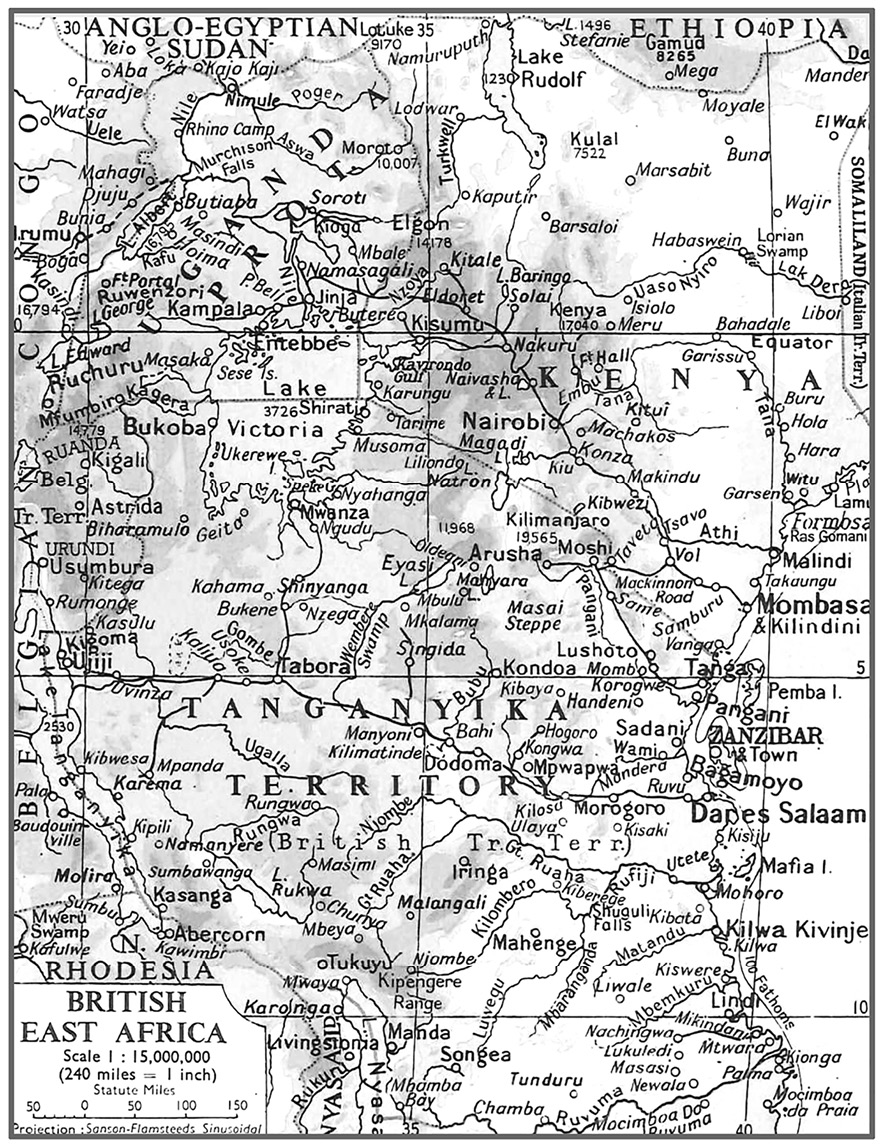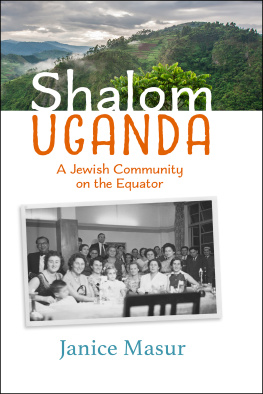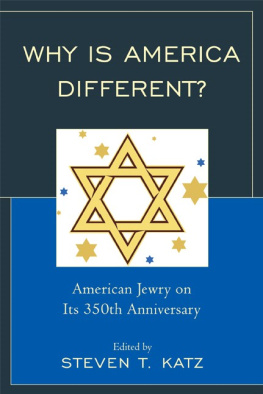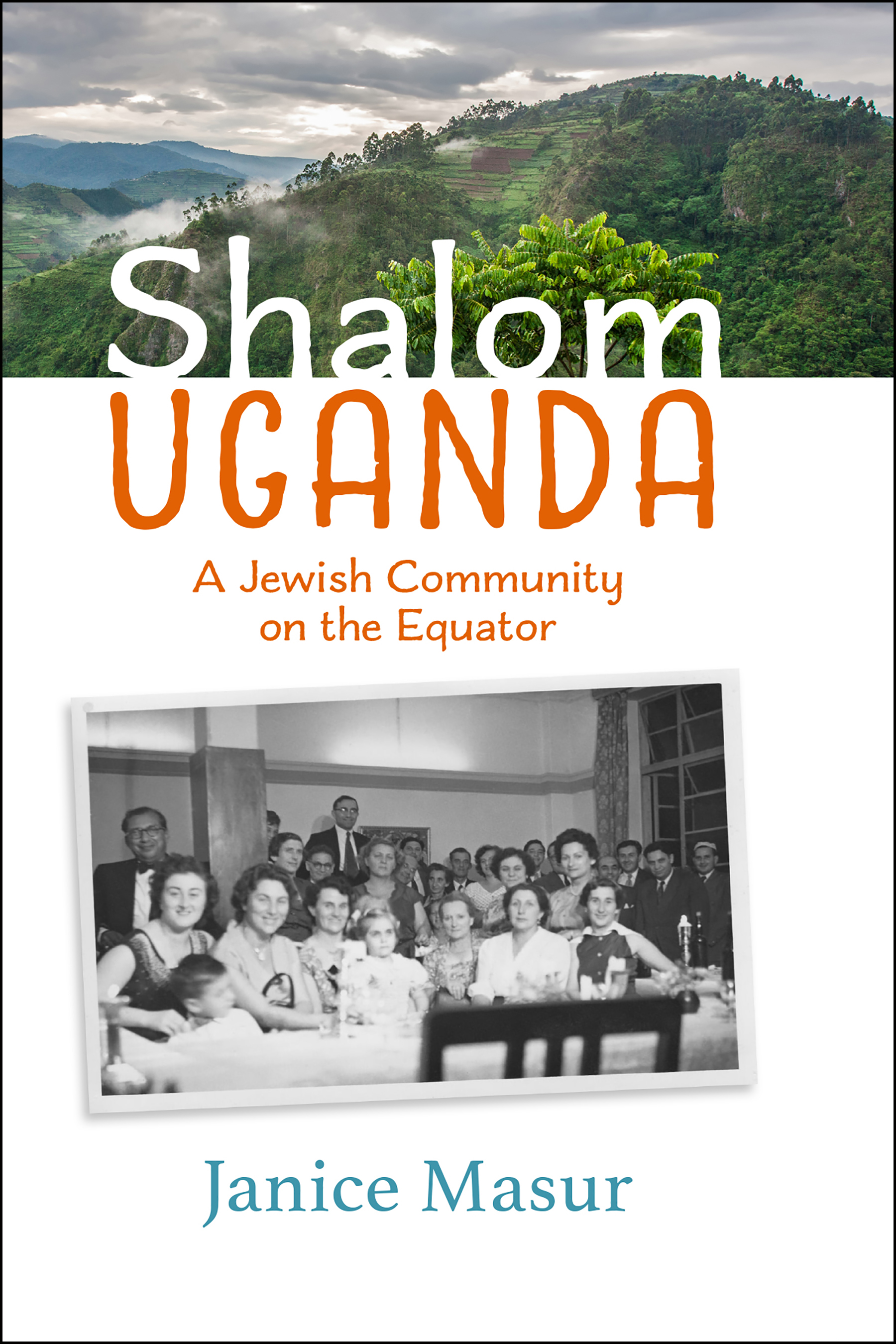
Janice Masur
Copyright
Text copyright 2020 Janice Masur
Photographs copyright 2020 from the personal collection of Janice Masur, with the exception of front cover colour photo, Southwestern Uganda, Bwindi Impenetrable Forest National Park, Travel Stock/Shutterstock.com; back cover painting, Mountain Scene, Kigezi, Uganda, Kay Lipton; title page, Crowned Crane, by Aliaksei VectorStock.
Map of British East Africa from Philips Modern School Atlas 43rd ed. London: George Philip and Son Limited, 1952.
First paperback edition published in April 2020
All rights reserved. No part of this publication may be reproduced or transmitted in any form or by any means, electronic or mechanical, including photocopying, recording or by any information storage and retrieval system, now known or to be invented, without permission in writing from the author, janicemasur@gmail.com
The author can be contacted for public speaking engagements at janicemasur@gmail.com
ISBN 978-1-9991469-1-7
Produced by Behind the Book (behindthebook.ca)
Cover design: Sean Thompson (seanthompson.crevado.com)
Ebook by EbookConversion.CA (ebookconversion.ca)
Copy editing: Dallas Harrison
Front cover (black-and-white photo): Almost the whole Kampala Jewish community at the Speke Hotel on Seder night, 1956. See Appendix I for names of those present (and missing).
Dedication
Dedicated to a vanished Jewish community
on the African equator
and to Joel, Liora and Tom
Contents
Acknowledgements
This book germinated from a research seed sown in an East African history credit course at Simon Fraser University in Vancouver, British Columbia. Professor Sarah Walshaw set this whole process in motion. Like an elephant pregnancy, it has taken a long time to complete. Little did she know what she had unleashed, because this project has become larger than a mature elephant. Some of the writing was exciting, some of it difficult, because I am not a professional writer; rather, I had a burning desire to bear witness to my Kampala Jewish community in Uganda since there seems to be no other record of its existence.
Walking on the sometimes jagged and sometimes smooth stepping stones of this daunting path, I have been helped along the way by many to whom I am most grateful. Many amazing people have given their time and knowledge unstintingly. Sue Eldridge was a most helpful critic in the early days. Ed Steinberg provided some salient points in his reading. Richard Menkis, Hinda Avery and Rhoda Kaellis (who has since died) were insightful readers of an early draft. I am indebted to my mentors Betsy Warland, in the VMI (Vancouver Manuscript Intensive) creative writing program, and Ingrid Rose, whose inspirational words of wisdom and invaluable gentle caring and knowledge thrust me into the fire of writing a memoir. I also thank my creative writing group for their encouragement.
I am grateful to octogenarian Theresa Franco, now living in Houston; the late nonagenarians Ilsa Dokelman and Dina Levitan, who lived in London, England; and Kay Lipton, now living in Brisbane. All were delighted to help me. Their most generous time and energy answering my numerous questions about Uganda, with their collective sharp minds, were invaluable. Among others, Arye Oded, Sami Cohen, David Lichtenstein, David Kiyaga-Mulindwa and Rabbi Jonathan Infeld, and finally the late Velora Moskovitch, helped me along my way.
My East African school friends, who live all over the world, were quick to respond via email with details of and embellishments to my questions about our childhood there. With deep gratitude, I thank Hazel Slutzkin, Ruth Walton, Leora Liberman, Dita Dokelman, Bernard Dokelman, Danny Franco, Margaret Bryant and Carol Lynch. It astonishes me, now living in Canada, to have Highland School friends here in British ColumbiaGillian Pinette and Jane Matheson, from primary school in Kampala, and Carolyn and Elizabeth Millar-Logan and Barbara Kaylor, from Highland School years; all were supportive and helpful with memorable details, which I have tried faithfully to include.
Grateful thanks go to my dear lifetime friends Sheila Kemble, Jane Cole and Shirley Fineblit, all eagle-eyed readers who did a remarkable job of making an early manuscript grammatical. I thank Charles Szlapak and Adinah Zola for their archival hunting on my behalf in Nairobi Jewish Congregation archives. Pierre Dansereaus invaluable computer expertise rescued me on many occasions. I could not have managed without the excellent editorial assistance of Sally Taplin, Lisa Ferdman and especially Linda Shulman; Lindas attention to the smallest details and her sharp editorial know-how finally began the birthing of this personal memoir. Dear friends Ted Cohen, Peggy Meyer and Jana Abramson provided valuable comments in the final stages of writing. And last, but definitely not least, editors Pat Dobie and Maureen Phillips nurtured the manuscript and added much clarity to it. My husband, Tom Szekely, deserves many accolades for his long-term support, late suppers and truly wonderful readers eye. And thank you to Rachelle Kanefsky and Carol Watterson of Behind the Book for their flair and polish.
May 2020

British East Africa, Philips Modern School Atlas, 1952.
Preface
Frequently, in a genuinely interested way, because of my accent, I am asked what part of the world I come from. Reticently, I reply Africa, or, if I am feeling communicative, I might say invitingly, Well, colonial East Africa, actually. With some surprise, the questioner exclaims, Oh! I could have sworn you had lived in England. After we have established that I am Jewish, knowingly, and after a moment of thought, the person continues brightly, Oh, the Abayudaya! I take in a big, mostly undisguised, breath and wonder how much information I should divulge. After all, most likely, I hardly know the person. Slowly and thoughtfully, I say, The European or Ashkenazi Jews who lived in Kampala. Really? the person replies. I had no idea about a European Jewish community on the equator. After we have established that the country is Uganda, most people are satisfied, and the tack of conversation moves toward more familiar ground. Inwardly, I am happy to be off the hook, draw myself up tall and remember a time when I would not have divulged even that much information, rather choosing to hide my accent and younger self in New Zealand, which is partially true.
Gradually, over the years, this internal dissonance came to a head and was further strengthened when I noted that many Canadians who exhibited varying degrees of knowledge about the Jewish diaspora knew about the Abayudaya blacks who had converted to Judaism but were almost completely unaware of a European Jewish community in Kampala. Recently, a Jewish woman told me that she could not ever imagine an Ashkenazi Jewish community being present there.
The general lack of knowledge that a European Jewish community had definitely existed on the African equator greatly increased my desire to remember and be a witness of my own small Jewish communityespecially since now most references pertain only to the converted black Abayudaya Jews of Uganda. The two groups coexisted in the British Protectorate of Uganda before the Second World War. My community gathered a few Jewish souls during the Shoa or Holocaust and a handful more in the twenty or so years following this tragedy and before Ugandan independence in 1962.











